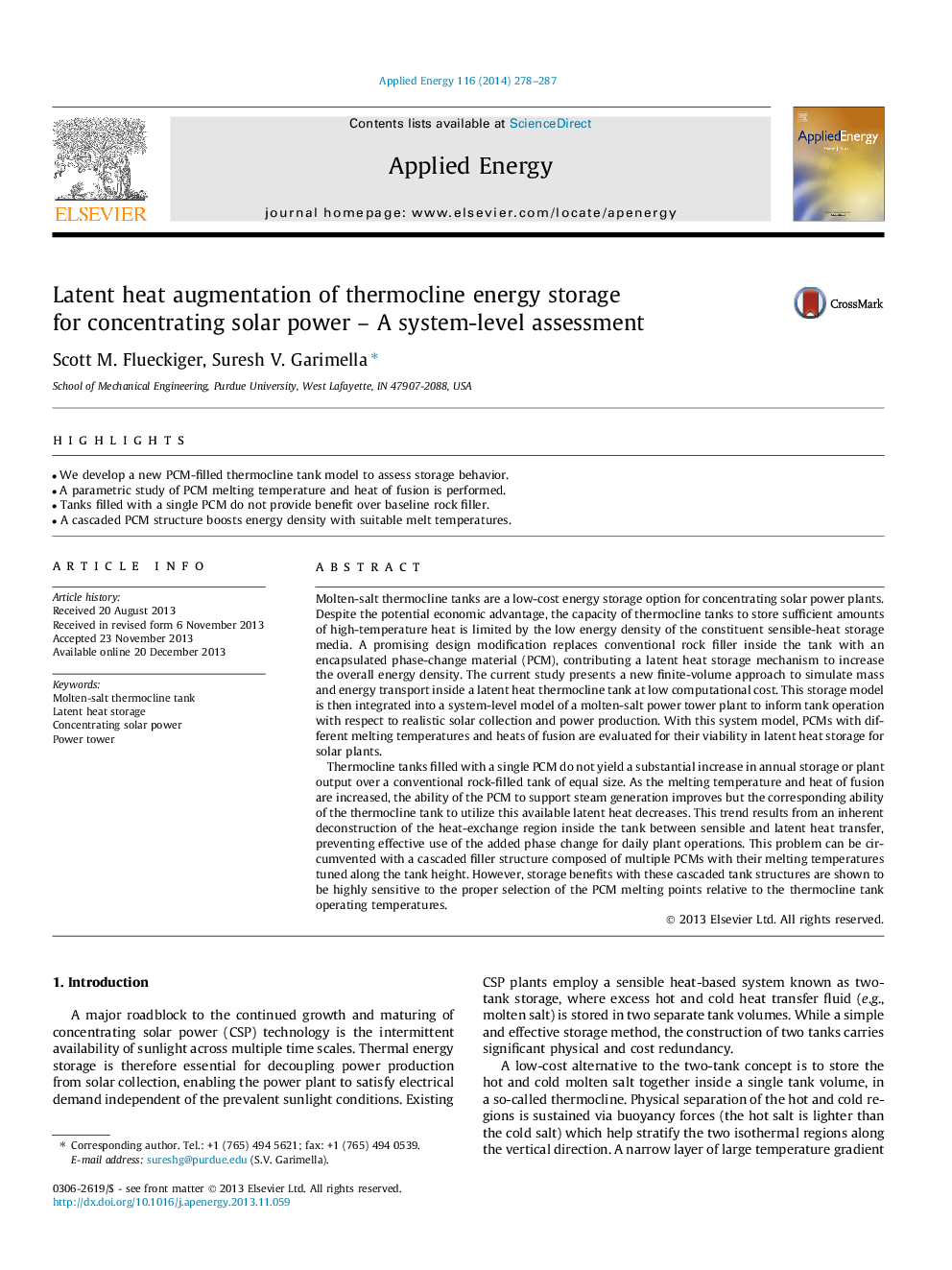| Article ID | Journal | Published Year | Pages | File Type |
|---|---|---|---|---|
| 6691258 | Applied Energy | 2014 | 10 Pages |
Abstract
Thermocline tanks filled with a single PCM do not yield a substantial increase in annual storage or plant output over a conventional rock-filled tank of equal size. As the melting temperature and heat of fusion are increased, the ability of the PCM to support steam generation improves but the corresponding ability of the thermocline tank to utilize this available latent heat decreases. This trend results from an inherent deconstruction of the heat-exchange region inside the tank between sensible and latent heat transfer, preventing effective use of the added phase change for daily plant operations. This problem can be circumvented with a cascaded filler structure composed of multiple PCMs with their melting temperatures tuned along the tank height. However, storage benefits with these cascaded tank structures are shown to be highly sensitive to the proper selection of the PCM melting points relative to the thermocline tank operating temperatures.
Related Topics
Physical Sciences and Engineering
Energy
Energy Engineering and Power Technology
Authors
Scott M. Flueckiger, Suresh V. Garimella,
